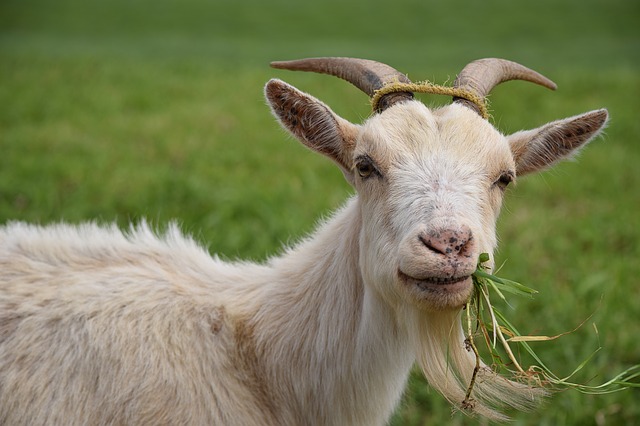
As many British homeowners are sadly aware, Japanese knotweed is an invasive plant species that's strong enough to grow through concrete and cause significant damage to buildings and roads.
For this reason, the presence of Japanese knotweed can reduce a property's value by as much as 20% - it's notoriously difficult to sell a house with Japanese knotweed, and getting rid of it often takes multiple applications of herbicide over a number of months.
Wouldn't it be nice if there were a species of animal willing to eat our Japanese knotweed problems away?
Animals that can eat Japanese knotweed
According to the Deerfield River Watershed Association in the USA, "Japanese knotweed can be safely eaten by sheep, cattle, horses, and goats".
Grazing alone won't be enough to eliminate Japanese knotweed from an area, but it may limit the plant's ability to spread.
This BBC article from 2010 points out that Japanese knotweed isn't really a problem in its native country - while common, the plant "doesn't rage out of control like it does in the UK, thanks to natural predators that keep it in check".
In Japan, knotweed has many natural predators in the form of nearly 200 insect species and a variety of fungi. Certain psyllids (plant lice) have proven to have an appetite for Japanese knotweed sap - the organisers of the Chelsea Flower Show have looked at using psyllids to keep Japanese knotweed at bay, and one species (Aphalara itadori) has even been released into the wild in an effort to combat the UK's knotweed problem.
Is Japanese knotweed poisonous to pets?
Thankfully, Japanese knotweed is not poisonous to animals, so while you may find the appearance of this invasive plant on your property worrisome, you don't need to worry about your pets.
Most common pets like cats and dogs tend to stay away from Japanese knotweed, but even if they did decide to give it a bite, they shouldn't come to any significant harm. Of course, if you think that your pet has eaten Japanese knotweed and had an adverse reaction, you should contact your vet right away.
Can humans eat Japanese knotweed?
Yes, we can! Japanese knotweed is safe for humans to consume as long as it hasn't been treated with potentially harmful herbicides. It's a good source of vitamin A, and it supposedly tastes similar to rhubarb.
More Facts About Japanese Knotweed
British horticulturist Alys Fowler said in 2018 that we should "eat Japanese knotweed into submission". That said, you'd have to eat an awful lot of Japanese knotweed to completely eradicate the plant from your property!
Is Japanese knotweed poisonous to humans?
People often confuse Japanese knotweed with giant hogweed because of its appearance which is why correctly identifying Japanese knotweed is so important. Unlike Japanese knotweed, which might cause mild irritation, giant hogweed can cause rashes, blisters and (in the worst cases) blindness.
Thankfully, humans can eat Japanese knotweed and not come to any serious harm (as we've already discussed). That being said, coming into contact with the invasive weed can cause mild skin irritation. If you get your Japanese knotweed infestation treated promptly and professionally, you'll greatly reduce the chances of any kind of contact or reaction!
If you have Japanese knotweed on your property - or if you've noticed it in your neighbour's garden and you're worried it might spread to yours - Total Weed Control can help. We can visit your property and carry out a FREE Japanese knotweed survey to confirm whether or not you have a knotweed infestation. If you do, we can treat your Japanese knotweed with specialist herbicides to get it under control.
Request a FREE Japanese Knotweed Survey
Photo from Pixabay
